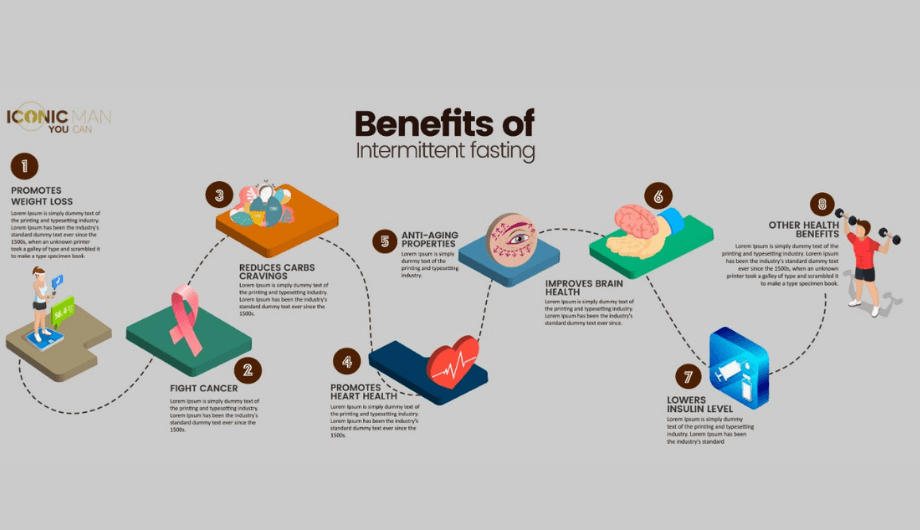Get Started With Intermittent Fasting: The Beginner’s Guide
“Is it for me?”
“Why is everyone around me going crazy about it?”
“How is it practically possible to restrict yourself to eat only during certain hours?”
“Why is everyone around me going crazy about it?”
“How is it practically possible to restrict yourself to eat only during certain hours?”
Have you ever found yourself having these thoughts? It is natural to become curious about it. We cannot deny that Intermittent Fasting (IF) is the new rage in the health and fitness sector since a while now. It’s making the rounds at designing our lifestyle to live a productive and well-meaning life. Researchers argue that Intermittent Fasting is a rather ancient way of eating and has been a usual practice. Our forefathers didn’t have the luxury of food all the time, in the absence of food and unforeseen weather conditions they were forced to eat intermittently(sporadically). It is only now that this little secret is gaining some public eye. Now that we know the origins of this particular style of eating, let’s take you on a journey to know more about IF.
What is Intermittent Fasting?
Unlike other diets, Intermittent Fasting only restricts ‘when’ you eat something and lets you have a freehold on ‘what’ you eat. It’s a pattern in which you ‘eat’ food in a time window and ‘fast’ for the rest of the time. This thus puts our body in two phases, instead of putting a bar on the kind of food you eat. You’re allowed to consume water, coffee and tea during your fasting hours. With a minimal quantity of milk and sugar (not exceeding 50 calories).

There are different variations in which you can consume your calories intermittently, some of the most famously followed ones are:
a) 16:8
In this protocol, you eat in the window of 8 consecutive hours and avoid it in the next 16 hours. This is the most convenient and thus has a larger following. People following this essentially miss their breakfasts and have their lunch as the first meal of the day, following by your usual snacks and closing the day window by eating your dinner.
b) 24 Hour
This protocol lets you eat like you normally do for a day, and then makes you fast for the next. So, if you had your full day of eating and finished dinner by 8 PM, the fasting period shall end next day same time. This is advised to be undertaken twice or thrice a week.
c) 5:2
You eat normally for any five days of the week and fast for two consecutive days. You may consume 500-600 calories/day for the bare minimum requirement of the body.
How Does Intermittent Magic Do It’s Magic?
Skipping food and fasting will naturally make you lose weight since you’re putting lesser calories in your body. But there’s more happening inside than what meets the eye. Some changes that have been studied amongst people following the diet are:
a) Body Starts To Use Fat For Its Energy Use
To perpetuate life and serve the evolutionary purpose of survival, the body allows the fat cells in the body to provide for the energy needs of the body which are nothing but energy reserves in the body.
b) Increases Body’s Sensitivity For Insulin
Insulin is released when we eat food, thus in its absence, the body becomes extremely vigilant.
c) HGH(Human Growth Hormone) levels pique up
This hormone is responsible for your metabolism, cell repair and muscle health. It helps you recover from injury and diseases, removing dead cells.
a) 16:8
In this protocol, you eat in the window of 8 consecutive hours and avoid it in the next 16 hours. This is the most convenient and thus has a larger following. People following this essentially miss their breakfasts and have their lunch as the first meal of the day, following by your usual snacks and closing the day window by eating your dinner.
b) 24 Hour
This protocol lets you eat like you normally do for a day, and then makes you fast for the next. So, if you had your full day of eating and finished dinner by 8 PM, the fasting period shall end next day same time. This is advised to be undertaken twice or thrice a week.
c) 5:2
You eat normally for any five days of the week and fast for two consecutive days. You may consume 500-600 calories/day for the bare minimum requirement of the body.
How Does Intermittent Magic Do It’s Magic?
Skipping food and fasting will naturally make you lose weight since you’re putting lesser calories in your body. But there’s more happening inside than what meets the eye. Some changes that have been studied amongst people following the diet are:
a) Body Starts To Use Fat For Its Energy Use
To perpetuate life and serve the evolutionary purpose of survival, the body allows the fat cells in the body to provide for the energy needs of the body which are nothing but energy reserves in the body.
b) Increases Body’s Sensitivity For Insulin
Insulin is released when we eat food, thus in its absence, the body becomes extremely vigilant.
c) HGH(Human Growth Hormone) levels pique up
This hormone is responsible for your metabolism, cell repair and muscle health. It helps you recover from injury and diseases, removing dead cells.

Why You Must Give It Try? Well, Read On And Find It Out
a) Weight Loss
Unless you eat in far greater quantities than you normally do, weight loss is inevitable. Since you’re missing meal(s), it will eventually lead you to lose some pounds off.
b) Increases Insulin Sensitivity
Your body reduces the resistance for insulin, thus saving you from Diabetes Type 2.
c) Brain Health
It facilitates the release of BDNF and formation of new nerve cells, thus making the brain active and vigilant at all times. It also protects you from Alzheimer’s disease.
d) Reduces The Risk Of Cancer
Studies and research suggest that cancer and other heart diseases are less likely to happen to someone who fasts.
e) Anti-Ageing Properties
The increases HGH levels help you get rid of dead cells, renews and restores cellular health to optimum levels. This has anti-ageing characteristics.

Intermittent Fasting And Concerns Revolving It
When Should I Schedule My Fasting And Eating Hours?
Well, as cliche as it may sound, to each his own. If you’re an early riser and prefer to train in a fasted state, then you may consider eating between 12 pm to 8 pm(If you’re following the 16:8 protocol). Depending on your goals, lifestyle, environment you may make a conscious choice to follow a particular protocol of Intermittent Fasting.
Will I Have Enough Energy To Weight Train During Intermittent Fasting?
The only difference in training while on a fasted state is where you derive your energy from. In the absence of readily available carbohydrates, the body tends to burn its fat cells to provide for the energy requirement. This facilitates fat burn, a goal for many who follow this diet pattern.
Won’t I Lose My Muscles?
Albeit what we’ve been told, our bodies can adapt well to changing patterns of eating. Muscle repair and restoration needs protein, but this can happen in a window of quite a number of hours. You need to worry about your protein intake right after a workout. While it is true that you lose fat cells, muscle loss may also happen(owing to the overall calorie deficit you stay in). However, your body is designed to preserve the muscles(to fight unforeseen circumstances) and use stored food(fat cells).

How Much Are We Supposed To Eat While Following IF?
It follows on what your short term and long term goals are. If you intend to only lose weight, you might consider eating the usual meal portion size. However, if you’re transitioning from a cut phase to a bulk phase, you need to increase your calorie intake by a great degree.
Intermittent Fasting can thus be seen as a powerful way to lose weight without changing what you put in your body. However, as seen above IF has benefits which extend far greater than just weight loss. Improved cognitive functioning, Mental clarity, increased metabolism, better heart health are just some of those umpteen advantages. We would recommend you to identify your goals and work your way back to what suits your needs. We would love to hear from you about your own experience.
user rating :
4.75 stars (4 votes)
Sakshi considers herself a speck of creation trying to make sense of this galaxy. Meditation Practitioner, Life enthusiast & Traveller, she firmly believes in the power of change and goodwill. She is working as a content creator and a branding consultant